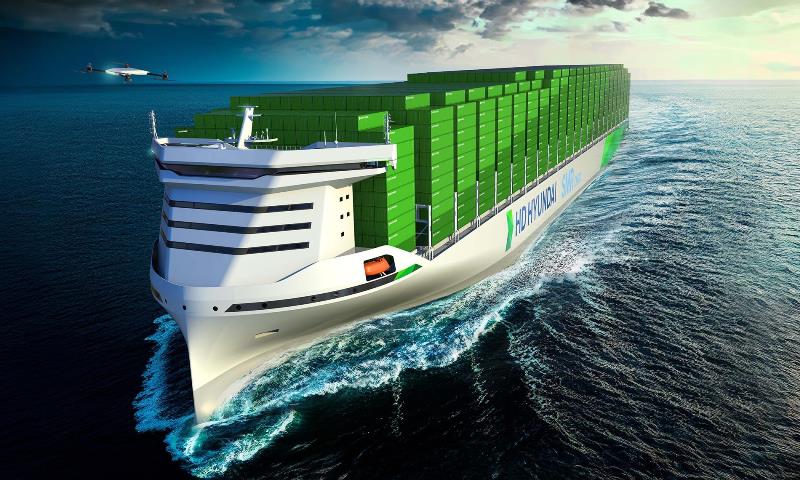Nuclear-powered containerships could unlock $68 million in annual savings and eliminate GHG emissions, according to a new report by Lloyd’s Register (LR) and LucidCatalyst for Seaspan Corporation Pte. Ltd.
The study examines the technical, economic and regulatory potential of integrating small modular reactors (SMRs) into the containership fleet and includes a detailed analysis of costs and benefits for Seaspan’s business model.
According to the report, nuclear propulsion could eliminate up to $50 million annually in bunker fuel costs for vessel operators and an estimated $18 million in carbon penalties.
A single 15,000 TEU nuclear-powered containership operating at 25 knots — described as 39% faster than conventional vessels — could achieve up to 38% higher annual cargo capacity, driven by increased speed enabling 6.3 rather than 5 round voyages annually, and 5% additional container space due to the removal of fuel tanks and systems.
The analysis concludes that development of a requirements-led supply chain through a cross-industry consortium is essential for wide-scale deployment. If the industry commits to purchasing more than 1,000 units within 10–15 years, the report estimates modular reactors could be produced at US$750–1,000 per kilowatt, maintained within standard drydock cycles and designed to operate around five years between refuelling.
The study notes that nuclear propulsion units could reach commercial readiness within four years of an intensive programme, with total system costs below $4,000/kW and fuel costs under $50/MWh. Market modelling suggests a potential uptake of 40–90 GW by 2050, depending on regulatory progress and adoption.
It also highlights best practices for designing a competitive supply chain and outlines reactor and fuel-leasing models intended to help manage upfront costs while supporting compliance.
This work represents the first phase of a three-part programme. The next phase will focus on concept design and regulatory readiness, including engagement with shipyards, port authorities and nuclear regulators, while the final phase will outline a detailed implementation roadmap.
Lloyd’s Register is an international technical and professional services organisation that provides classification, compliance, and advisory services for marine and industrial sectors. It operates as an independent entity governed by the Lloyd’s Register Foundation, which supports engineering-related research and education.
LucidCatalyst is an energy consultancy that specialises in analytical, engineering and economic studies for large-scale clean energy systems. The firm conducts techno-economic modelling and project assessments for clients seeking to evaluate advanced energy technologies.

